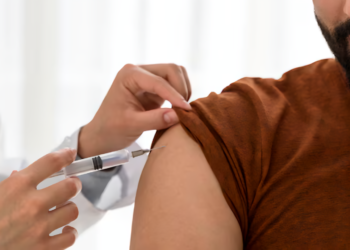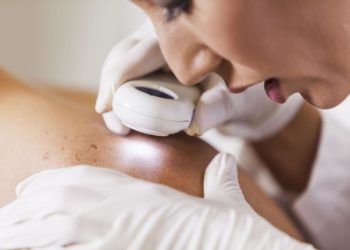Choosing the right drug testing kits for your workplace is crucial for maintaining a safe and productive environment. Professional use drug testing kits should be accurate and reliable, ensuring that the results you get can be trusted. These kits are designed to meet the needs of employers who require precise and timely data.
When selecting a drug testing kit, you need to consider factors like the detection window and the type of test that suits your workplace best. Urine tests, for example, have a longer detection window, while saliva tests provide quick results. It’s also important to choose kits from reputable suppliers that comply with regulatory standards. Ensuring the kits adhere to regulatory compliance will save you from potential legal issues.
Focusing on ease of use and understanding the costs involved is essential. High-quality drug testing kits might have a higher upfront cost but offer long-term benefits in terms of reliability and accuracy. Opt for kits that are easy to use and provide results quickly, freeing up time for more important tasks.
Key Takeaways
- Professional use drug testing kits must be accurate and reliable
- Consider detection windows and regulatory compliance
- High-quality kits offer long-term benefits and ease of use
Accuracy and Sensitivity
Choosing a professional drug testing kit involves considering its ability to detect various substances, its sensitivity, and how accurate the results are. Each of these factors plays a crucial role in ensuring the effectiveness and reliability of the testing process.
Types of Drugs Detected
Professional drug testing kits should cover a broad spectrum of substances. Commonly tested drugs include cannabis, cocaine, opioids, amphetamines, and benzodiazepines. Some kits can detect less common substances like synthetic cannabinoids or designer drugs.
It’s crucial to select a kit that aligns with your specific testing needs. Workplace environments may prioritise tests for alcohol and prescription drugs. Legal or clinical settings might need to identify a wider range of substances.
Ensure the kits are capable of identifying both parent compounds and metabolites, improving detection accuracy. This capability determines the effectiveness of the test in different scenarios, such as recent versus long-term use.
Sensitivity Levels
Sensitivity measures how well a test can detect low concentrations of a drug. Higher sensitivity means the test can identify smaller amounts of the substance, which is crucial for early detection and maintaining a drug-free environment.
Sensitivity levels are expressed in nanograms per millilitre (ng/mL). For example, a test with a sensitivity of 50 ng/mL for THC is more sensitive than one with 100 ng/mL. Lower thresholds can detect drug use further back in time.
Balancing sensitivity and specificity is critical. Highly sensitive tests might result in more false positives, so it’s important to choose a test that minimises these errors while detecting substance use accurately.
Accuracy Ratings
Accuracy indicates how correctly the test identifies the presence or absence of drugs. High accuracy reduces the risk of false positives and false negatives, ensuring reliable results.
Industry standards for accuracy are essential benchmarks. Look for kits that comply with organisations such as the Food and Drug Administration (FDA) or meet certifications like ISO 13485. These standards indicate rigorous testing and reliability.
Test validations and comparisons with laboratory standards provide insight into accuracy. Kits should have published data supporting their claimed accuracy, allowing you to trust the results.
Practical considerations include ease of interpretation and whether external factors, like medication, might affect results. Choosing an accurate and sensitive kit ensures dependable screening processes.
Regulatory Compliance
Understanding regulatory compliance is crucial when selecting professional drug testing kits. This ensures that the products used meet legal standards and provide reliable results.
FDA Approval
FDA approval is essential for drug testing kits used in the United States. The Food and Drug Administration (FDA) evaluates and approves these kits to ensure they are safe and effective. Without FDA approval, there is no guarantee that the kits will provide accurate results.
To verify FDA approval, check the product label or the manufacturer’s website. FDA-approved kits undergo rigorous testing and must meet strict standards. This approval indicates the product has been tested for both accuracy and safety, making it more trustworthy.
CE Marking
CE marking is a key requirement for drug testing kits sold in the European Economic Area (EEA). This certification indicates that the product complies with EU safety, health, and environmental requirements. It is crucial to ensure the product meets stringent standards and is safe for use.
CE marking covers various aspects, including performance, technical characteristics, and quality. To find out if a drug testing kit has CE marking, inspect the packaging or product documentation. Kits with this mark are recognised for their reliability and adherence to European regulations.
ISO Certification
ISO certification ensures that drug testing kits meet international quality standards. The International Organization for Standardization (ISO) sets these standards to ensure consistency, safety, and efficiency in products. ISO certification is particularly important for workplaces seeking reliable and high-quality drug testing solutions.
ISO-certified kits undergo thorough evaluation for quality management and production processes. This certification is an assurance of the product’s dependability. Look for ISO certification on the product label or accompanying documentation. For instance, products like FlowFlex Covid Self-Tests 5 Pack might also carry ISO certification, ensuring they meet high-quality standards.
Conclusion
When picking professional drug testing kits, focus on accuracy and reliability. Think about how easy the kits are to use and their detection windows. Balancing costs with these factors is vital.
Ensure the kits are compliant with local regulations. Consider bulk purchasing for better deals. Ultimately, choose a kit that fits your needs and offers consistent, trustworthy results. When considering accuracy and reliability, also pay attention to the types of drugs the kits can detect, as well as their sensitivity levels. Additionally, inquire about customer support and training resources provided by the manufacturer to ensure proper usage and interpretation of results. Lastly, stay updated on advancements in drug testing technology to make informed decisions about the best kits for your organization’s needs.


![7 Best POS Software in the UK [2026 Edition]](https://todaynews.co.uk/wp-content/uploads/2026/02/7-Best-POS-Software-in-the-UK-2026-Edition-360x180.png)








































































